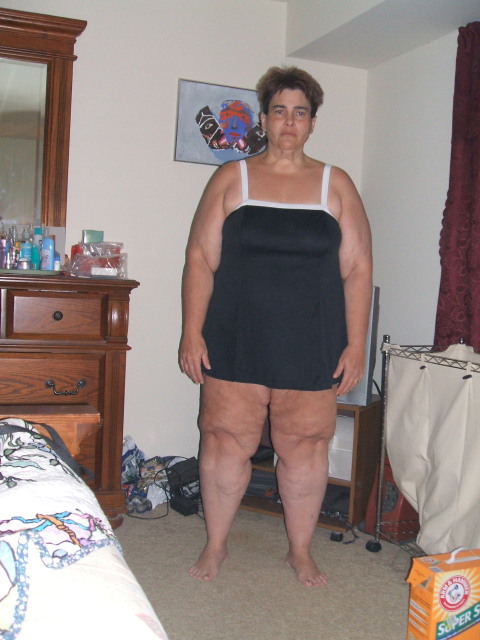Post bypass rhabdomyolysis
Question
QUESTION: I'm a new nurse on a med-surg floor (graduated last May). A few nights ago I had a female patient, BMI of 61, who came to our floor at 11:am after a laparoscopic Roux-en-Y gastric bypass. For day shift (and I believe this includes intra-surgical), her urine output was noted to be 120cc. She had one 1-liter bolus of normal saline on day shift.
During night shift, her urine output dropped to about 5cc per hour. The surgeon on call at 1am ordered two 500cc boluses of normal saline, both of which I gave to no effect. When I left at 6:30am, her 12-hour night-shift urine output had been 60cc of tea-colored urine. She also had nausea and vomiting, 100cc of brown liquid emesis with small chunks. She reported pain only to her incisions sites, which was controlled with a Dilaudid PCA.
At home the next day I googled "low urine output post bariatric surgery" and found an article in Bariatric Times (http://bariatrictimes.com/2007/12/17/rhabdomyolysis-following-bariatric-surgery/) on rhabdomyolysis (RML) following bypass surgery. The article cited a study which reported a 75% incidence of RML in gastric bypass patients ("Another prospective study that defined RML as a postoperative CPK level greater than 1,050IU/L reported a six-percent incidence of RML in gastric banding patients (shorter procedures) and a 75-percent incidence in gastric bypass (longer procedures) patients.[6]").
I don't know exactly how long she was in surgery, but I don't think the surgery could have started earlier than 7am and she was on our floor at 11am.
1) Without knowing this woman's serum CPK level, does this sound like acute renal failure secondary to RML? And if so, (2) what do you think of this statement on Wikipedia: "Rhabdomyolysis patients who experience acute renal failure (ARF) may have a mortality rate as high as 20%." (http://en.wikipedia.org/wiki/Rhabdomyolysis)
Of note, her BP had been trending down from about 135/80 immediately post op to about 90/55 at 1am, where it remained throughout the early morning hours. Her 24-hour fluid balance was noted to be + some 4.5 liters.
3) I've noticed bariatric post-op patients retain these amounts of fluids before, for several days on end, even with adequate urine output, what's going on physiologically that people retain so much fluid post-operatively like this?
Thank you so much for taking your time to answer these questions.
Sincerely,
Rebecca
ANSWER: Rebecca,
I'm really impressed with your level of concern and your follow-through on this patient. The intellectual curiosity and the initiative you are taking to learn more about this patient's disease will serve you well through your nursing career - keep up the good work!
I will try to give you some additional information and insight, though I will be a bit constrained by the written format and the fact that I need to avoid giving you medical advice since I have no medical relationship with this patient.
You paint a picture of a patient who is significantly ill after a somewhat long gastric bypass procedure. She is super morbidly obese, and is hypotensive with low urine output within 24 hours of finishing her surgical procedure. The nausea with brownish emesis and small chunks is hard for me to fit into the rest of the picture but also concerning. I'm going to list my thoughts about some potential underlying causes, with data that might support or refute some of these ideas. I'm going to list these in the order that I suppose to be most likely:
1) Third spacing --> hypotension --> renal insufficiency/failure. Third spacing sounds benign but in a very large patient with a tight abdomen due to obesity, abdominal edema can go on to 'abdominal compartment syndrome.'
2) bleeding - can occur inside the intestine (which would explain the brownish emesis) or in the abdominal cavity. Checking the hemoglobin/hematocrit would be the key thing to distinguish bleeding from third spacing.
3) acute bowel obstruction - sometimes if the laparoscopic procedure is very difficult or confusing, the intestine can be left trapped in an awkward or obstructed position ("internal hernia" for example). This bowel would become edematous and make the patient very ill very quickly. Diagnose by CT scan or re-operation. Patients with this problem have LOTS of abdominal pain.
4) anastomotic leak - a leak from the upper anastomosis (gastro-jejunostomy) or lower anastomosis (jejuno-jejunostomy) can cause a lot of fluid loss, and is life-threatening. Diagnose by CT or re-operation.
5) rhabdomyolysis - I put this last because I think that (contrary to the small studies reported in Bariatric Times) rhabdomyolysis happens very rarely in usual bariatric practice
In all of the cases above, bolus IV fluids are a reasonable first move. More fluids may be needed. Lab tests or a CT are probably appropriate if the problem does not clear up quickly or if they deteriorate.
I hope this is helpful.
Best of luck to you,
Dr JP
---------- FOLLOW-UP ----------
QUESTION: Dr JP, Thank you so much for your encouraging words and for your reassurance, "bolus IV fluids are a reasonable first move." This patient was the most grateful, appreciative, and apologetic I have ever had. I hope this surgery lengthens and improves her life rather than shortens it.
1) So am I right in inferring it's the pressure of the simple weight of large amounts of adipose tissue on the abdomen that prevents adequate abdominal distention during the third-spacing process, increasing the risk of abdominal compartment syndrome? Does visceral fat play a role as well?
2) What causes third-spacing in the first place? A general inflammatory response? Even without a complication such as an internal hernia? I've seen many post-op patients retain fluids -- easily 4 liters per day, even in young, fairly healthy patients without any obviously contributing factors such as CHF.
I go back to work tonight. I will be curious to see if I can follow-up on this patient. Thank you again for your time and consideration.
- Rebecca
Rebecca,
You are just about right with regards to the reasons that bariatric surgery patients are at higher risk for abdominal compartment syndrome. It is not exactly a weight phenomenon (although that is the primary issue for rhabdomyolysis, where weight --> pressure on the posterior surfaces). It is a bit more accurate to consider that the adipose-laden viscera (liver, intestines, mesentery, omentum, etc) are tightly "packed" into the abdomen so that even before surgery the obese patient has higher-than-normal abdominal pressure. The classic example is the male obese patient whose weight is all in his abdomen, with a "beach ball" belly. Anyway, the fact that there is already elevated pressure means there is very little room for swelling.
Third spacing happens with any major stressor such as surgery, bleeding, sepsis, major blunt trauma, anaphylaxis, and others. It is not clear exactly why, but when there is major stress/inflammation, the capillary blood vessels become "leaky" and fluid that ought to be in the bloodstream leaks out into all of the body tissues. Since the fluid is not circulating in the bloodstream the patient is effectively "dry," meaning there is not enough blood volume for the heart to pump effectively. Since there is not currently any drug to make the capillaries stop leaking, the answer is to give more fluid to compensate for the fluid that is lost.
Best of luck to your patient,
Dr JP
- Prev:Lap Band
- Next:from lapband to sleeve
Related Articles
-
Post Incisional Hernia Surgery
QuestionI had an Incisional Hernia repair 5 days ago and there is
-
2 year post Roux En Y
QuestionFor 7 months I have been gaining 2-3 lbs./month.I have NO
-
18 months post op (RNY)
QuestionI lost 150lbs the first year as I started at 415lbs but h
-
lapband on 15 year old female
QuestionIm a 15 year old female and I live in NY. I weigh around
-
Need Guidance
QuestionHi Monica: A mutual acquaintance told me about your incre
-
stomach surgeries
QuestionIve had a lot of gastric surgeries. Staples, original ban
- DON'T MISS
- hunger pangs all the time
- emotional eating at night
- Bariatric Revision Surgery
- re your thoughtful advice...
- Post-op gastric bypass 1999
- weigh gain after gastric bypass
- VBG revised to GBS=slow weight loss?
- is AchievOne protein ok for me?
- 3 years after gastric bypass surgery
- Gained weight after being on Zyprexa
More Great Links

